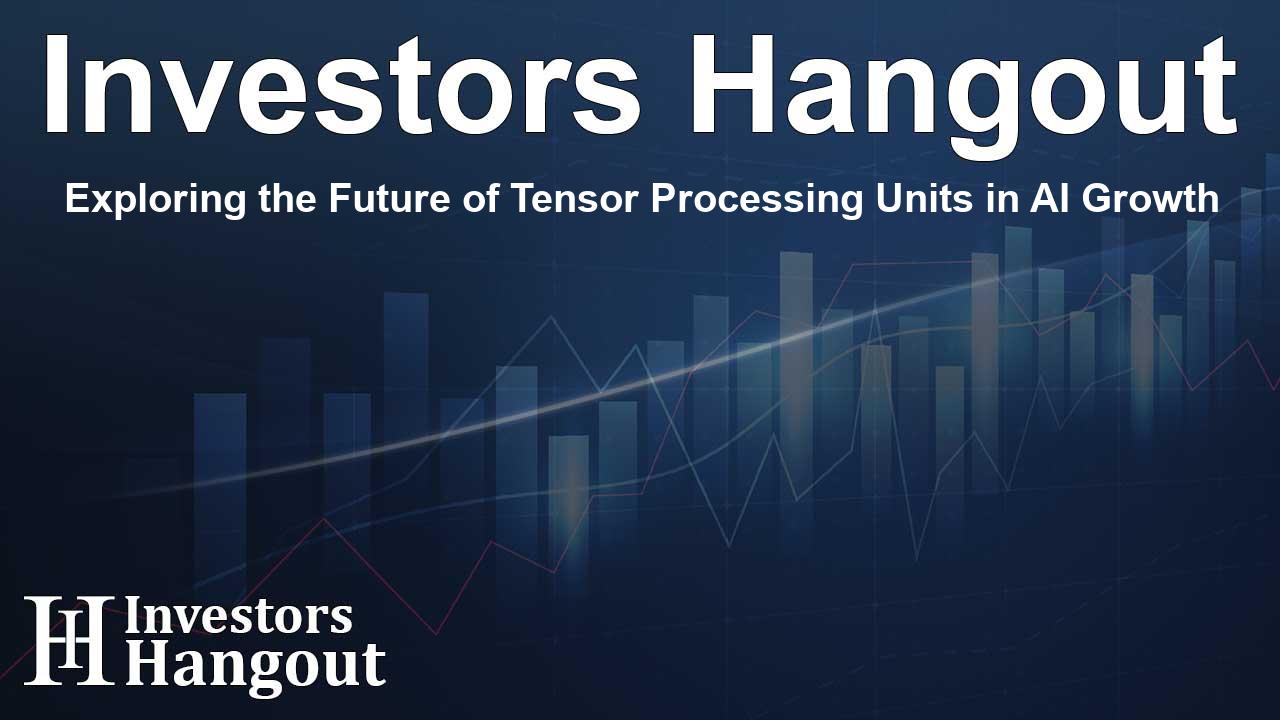Exploring the Future of Tensor Processing Units in AI Growth

Overview of Tensor Processing Units (TPUs)
The evolution of technology has led to the emergence of specialized processors, notably Tensor Processing Units (TPUs). These state-of-the-art application-specific integrated circuits (ASICs) are tailored to enhance the performance of artificial intelligence (AI) and machine learning (ML) tasks. Originally conceived by Google, TPUs are engineered for optimal efficiency and effectiveness in processing tensor operations, which are essential for deep learning applications.
Market Potential and Growth
The TPU market is undergoing an explosive expansion, with projections estimating its value to reach approximately $24.1 billion by 2032, driven by an impressive compound annual growth rate (CAGR) of 31.90%. This staggering growth rate reflects the increasing reliance on AI technologies across various sectors including healthcare, automotive, finance, and telecommunications.
Why TPUs Stand Out
What differentiates TPUs from traditional CPUs and GPUs is their unique architecture designed to expedite tensor computations needed for neural network operations. This specialized design enables TPUs to perform extensive matrix multiplications with minimal energy consumption, making them the go-to choice for organizations looking to streamline their AI processes.
Impact of Government Initiatives
Governments worldwide are recognizing the potential of AI and are supporting its development through substantial investments. In the U.S., initiatives are in place aimed at boosting foundational AI research, alongside proposed budgets allocating significant funds to foster AI talent and resources. This supportive environment is expected to bolster TPU adoption as private and public sectors work together to push the boundaries of AI capabilities.
The Advantages of TPU Implementation
Adopting TPUs offers numerous advantages, primarily increased computational speed and efficiency. Many businesses are leveraging TPUs for various AI applications such as image recognition in healthcare diagnostics, fraud detection in finance, and autonomous driving solutions in the automotive field. Cloud services from leading providers now offer TPUs as a service, allowing companies to enhance their AI capabilities without incurring high costs associated with hardware.
Sector-specific Adoption
The integration of TPUs is notable across several industries. For example, in healthcare, they empower advanced diagnostic tools and real-time patient data analytics. In finance, TPUs enhance the performance of algorithmic trading and risk assessments. Additionally, in manufacturing, these processors drive predictive analytics, fostering smarter factories and logistics. This versatility highlights TPUs' critical role across varied sectors.
TPUs in Edge Computing and IoT
With the rise of IoT devices and edge computing, TPUs are essential in enabling AI models to function locally on devices rather than relying solely on cloud processing. This shift allows for quicker data processing and decision-making, which is imperative in smart city applications, autonomous vehicles, and real-time analytics. As IoT networks expand, the demand for TPUs within these ecosystems will become increasingly pronounced, highlighting their importance in future tech developments.
Competitive Landscape
The TPU market is characterized by vibrant competition among major players. Organizations are investing heavily in creating strategic partnerships, pushing for innovative product designs, and integrating TPUs within their operational frameworks. Custom TPU designs tailored for specific applications, like natural language processing and automated systems for robotics, are gaining traction, keeping companies at the forefront of technology.
Future Trends and Market Dynamics
Looking ahead, the TPU market is set for transformative growth as AI becomes a pivotal part of global economies. Projections suggest that AI could contribute upwards of $14 trillion to the economy by 2035, with TPUs serving as foundational technology in this landscape. As organizations seek more efficient, scalable, and cost-effective computing solutions, TPUs will play a vital role in driving innovation in various industries.
Frequently Asked Questions
What are Tensor Processing Units (TPUs)?
TPUs are specialized ASICs designed by Google to accelerate AI and machine learning tasks, optimizing tensor operations crucial for deep learning.
What is driving the growth of the TPU market?
Rapid AI adoption across sectors, government investments in technology, and the need for efficient computing solutions are key growth drivers.
How do TPUs compare to traditional processors?
Unlike CPUs and GPUs, TPUs are tailored specifically for tensor computations, offering superior performance and energy efficiency for AI applications.
What industries are adopting TPUs?
TPUs are being adopted in various industries, including healthcare, finance, automotive, and manufacturing, enabling advanced analytics and automation.
What is the future outlook for the TPU market?
The TPU market is expected to experience exponential growth, supported by increasing demand for AI applications, projected to contribute significantly to the global economy.
About The Author
Contact Henry Turner privately here. Or send an email with ATTN: Henry Turner as the subject to contact@investorshangout.com.
About Investors Hangout
Investors Hangout is a leading online stock forum for financial discussion and learning, offering a wide range of free tools and resources. It draws in traders of all levels, who exchange market knowledge, investigate trading tactics, and keep an eye on industry developments in real time. Featuring financial articles, stock message boards, quotes, charts, company profiles, and live news updates. Through cooperative learning and a wealth of informational resources, it helps users from novices creating their first portfolios to experts honing their techniques. Join Investors Hangout today: https://investorshangout.com/
The content of this article is based on factual, publicly available information and does not represent legal, financial, or investment advice. Investors Hangout does not offer financial advice, and the author is not a licensed financial advisor. Consult a qualified advisor before making any financial or investment decisions based on this article. This article should not be considered advice to purchase, sell, or hold any securities or other investments. If any of the material provided here is inaccurate, please contact us for corrections.
